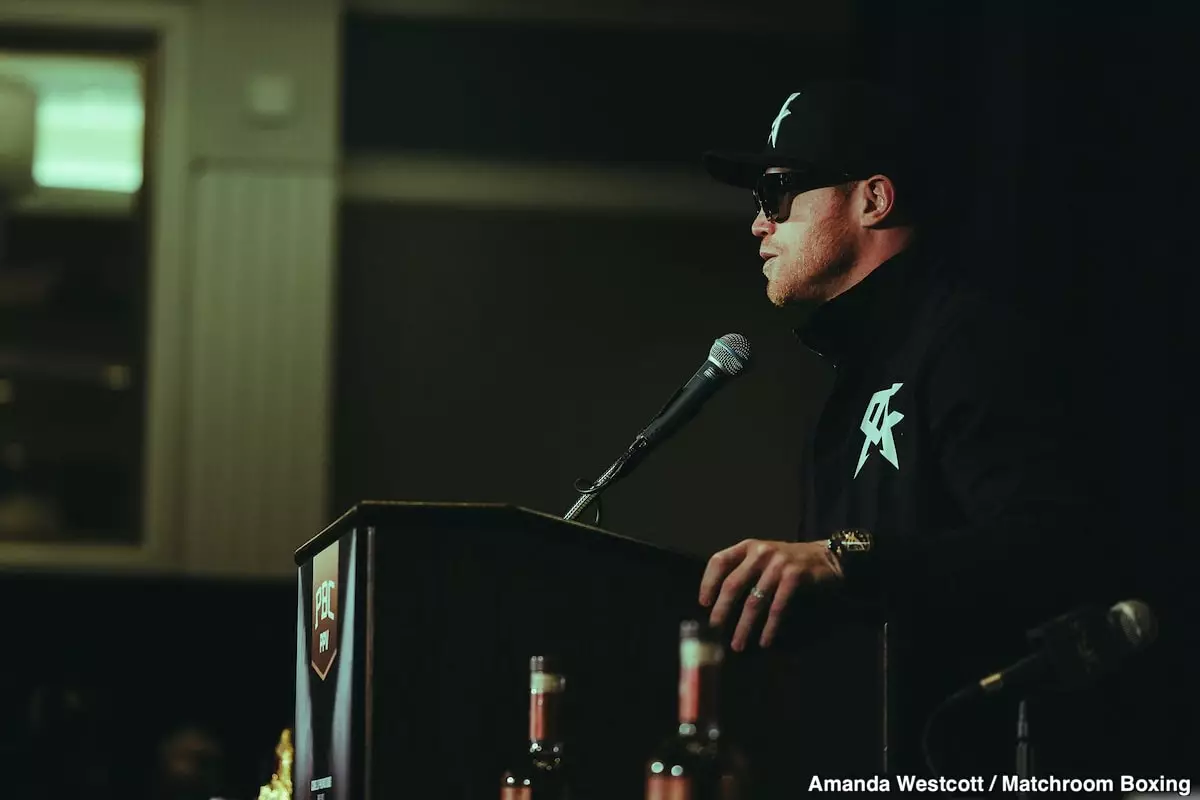On a night that celebrates Mexican culture and pride, Canelo Alvarez steps into the ring with expectations as glimmering as the fireworks that will likely punctuate the evening. His opponent, Edgar Berlanga, carries an unblemished record—22 wins, 17 of those by knockout—making him no stranger to the consequences of power punching. Alvarez, often considered one of the best pound-for-pound boxers in the world, predicts a decisive victory through a knockout. However, beneath the surface of this prediction lies a deeper narrative—one that confronts the dynamics of fan expectations, the weight of responsibility on the fighters, and the ever-evolving landscape of boxing.
Alvarez’s triumphs have granted him not only accolades but also a degree of confidence that borders on predictability. In past bouts, he has taken on formidable opponents like Gennadiy Golovkin and Sergey Kovalev. Yet, the grievances surrounding his choice of Berlanga diverge opinions among fans and critics alike. One can’t help but wonder whether he intentionally dodges a tussle with David Benavidez, a matchup that would surely promise a test of mettle and mutual respect. Alvarez’s assertion that he has fought “everybody” and will fight only if the financials are right raises eyebrows across the boxing community.
Curiously, much of the audience’s buzz revolves around the undercard, rather than the anticipated main event. This raises pertinent questions regarding Alvarez’s status in the boxing world. When a champion draws less interest than his supporting matches, it indicates a potential schism between a fighter’s ego and the varied desires of fan engagement. There is the impression that many see Berlanga merely as a stepping stone for Alvarez, rendering the bout bereft of suspense. Canelo must acknowledge that his celebrity status alone may not be sufficient to captivate an increasingly discerning audience.
While Canelo teases an early knockout for entertainment purposes, he must also grapple with the reality that Berlanga’s punching power represents genuine risk. During training sessions, Berlanga has had moments of vulnerability, conceding to shots from seasoned boxers. However, each fighter possesses their unique set of dynamics. Berlanga may not only be seeking to prove himself; he may also have the skills to counter Alvarez’s sharp counters, potentially turning the fight into a true spectacle.
Canelo’s approach in this matchup seems surprisingly brave. He opts to fight not just to win, but to provide a memorable experience for fans. Yet, what if this philosophy becomes his undoing? By projecting a desire to entertain, he risks being lulled into complacency, allowing Berlanga’s heavy hands an opportunity to land decisive shots. The age-old adage of ‘the best offense is a good defense’ rings particularly true in situations like this, where one solid blow could shift the momentum of the fight.
Furthermore, the contrasting fighting styles are worth considering. Alvarez is renowned for his counter-punching prowess and tactical acumen. Berlanga, on the other hand, thrives on aggression and potency. Hearn’s commentary points out that Canelo may prefer opponents who won’t evade him incessantly, suggesting a psychological edge in matchups against boxers who tend to employ tactics of avoidance rather than engagement.
As Canelo prepares to face Berlanga beneath the bright lights of the T-Mobile Arena in Las Vegas, both fighters find themselves at crossroads—one in pursuit of legitimacy and recognition, the other defending his legacy while balancing fan expectations and personal ambition.
While Alvarez’s prediction of a knockout may ring true, the fight’s outcome is ultimately uncertain. Factors such as strategy, endurance, and the ability to capitalize on opportunities will be pivotal. Fans eagerly await not only the results but the manner in which both boxers define their careers moving forward. Canelo Alvarez may have the experience and the accolades, but Edgar Berlanga brings an insatiable hunger for triumph—a dangerous combination in a sport where anything can happen in the blink of an eye. Thus, as the night approaches, it becomes clear that the stakes are high not just for the fighters but for the enduring spirit of boxing itself.

